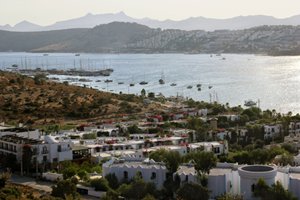
Turkey, a fascinating country straddling Europe and Asia, is often celebrated for its deep history, incredible landscapes, and diverse culture. But beyond the usual tourist spots and famous historical tales, there are numerous intriguing aspects of Turkey that many are unaware of. Let’s explore ten lesser-known facts about this captivating country.
Turkey is home to an astonishing number of ancient cities. Ephesus, Troy, and Göbekli Tepe are just the tip of the iceberg. Göbekli Tepe, for instance, is considered one of the world’s oldest temples, predating Stonehenge by over 6,000 years. These sites offer a glimpse into human history far beyond what most textbooks reveal.
Turkey’s climate is as varied as its landscape. From the snowy mountains in the east to the warm, Mediterranean beaches in the south, it’s possible to ski and swim in the sea on the same day during certain times of the year. This unique climatic diversity contributes to the country's rich biodiversity and array of outdoor activities.
Turkish is a unique language with no close relatives, aside from a few languages in Central Asia. It’s part of the Turkic language family and underwent a significant transformation in the 20th century, switching from the Arabic to the Latin alphabet, and shedding many of its Arabic and Persian loanwords in favour of Turkic ones.
Better known as Santa Claus, Saint Nicholas was born in the ancient city of Myra, now Demre, in modern Turkey. He was a bishop known for his generosity, a trait that inspired the Santa Claus legend. Each year, thousands visit the Church of St. Nicholas in Demre to pay homage.
Turkey is one of the world’s leading countries in terms of flower diversity. In fact, it has more flower species than the whole of Europe combined. The country’s varied climates and landscapes contribute to this rich floral diversity, including the famous Turkish tulips, which were central to a historic "tulip period" in the Ottoman Empire.
Though often associated with Italy or France, coffee house culture actually started in Turkey. Turkish coffee, known for its strong flavour and unique preparation, is a significant part of Turkish culture and was even listed in UNESCO’s Intangible Cultural Heritage of Humanity in 2013.
Orhan Pamuk, one of Turkey’s most famous authors, was awarded the Nobel Prize in Literature in 2006. He’s known for novels that deeply explore the social and cultural fabric of Turkey, blending Western literary techniques with Eastern storytelling.
Turkey’s largest island, Gökçeada (formerly known as Imbros), is also one of the largest in the Aegean Sea. It's known for its pristine beaches, clear waters, and unspoilt natural beauty, making it a hidden gem for tourists seeking tranquillity away from the bustling mainland.
Turkish carpets and kilims are world-renowned for their quality and intricate designs. These are not just simple crafts but are deeply embedded in Turkish culture, with each region offering its own unique patterns and styles, reflecting the country’s diverse ethnic and cultural heritage.
Pamukkale, meaning "cotton castle" in Turkish, is a natural wonder featuring terraces of carbonate minerals left by flowing water. This surreal landscape is not only visually stunning but also historically significant, with the ancient city of Hierapolis built on top of this natural wonder.
Turkey is a country brimming with surprises, and these facts barely scratch the surface of what it has to offer. From its rich history and cultural heritage to its natural wonders and unique traditions, Turkey remains a destination that continues to enchant and educate its visitors in equal measure. Whether you're a history buff, nature lover, or just someone looking for an adventure, Turkey promises an unforgettable experience.